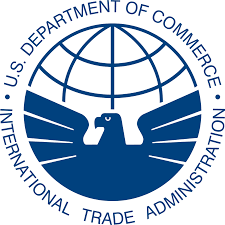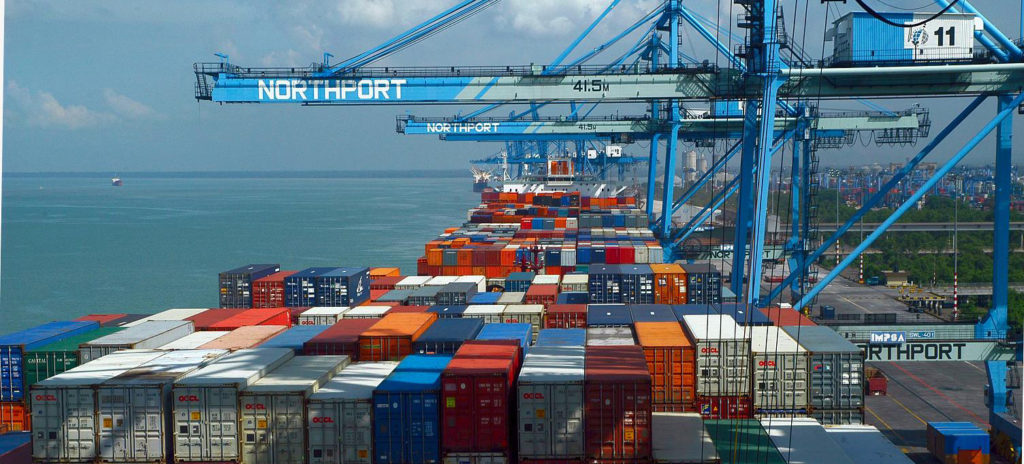Last week the Foreign-Trade Zone Board released the 76th ANNUAL REPORT of the Foreign-Trade Zones Board to the Congress OF THE UNITED STATES.

Foreign-trade zones are secure areas under supervision of U.S. Customs and Border Protection (CBP) that are considered outside the customs territory of the United States for the purposes of duty payment. Located in or near customs ports of entry, they are the U.S. version of what are known internationally as free trade zones. Authority for establishing these facilities is granted by the Foreign-Trade Zones Board under the Foreign-Trade Zones Act of 1934, as amended (19 U.S.C. 81a-81u), and the Board’s regulations (15 C.F.R. Part 400). The Executive Secretariat of the Board is located within Enforcement and Compliance of the U.S. Department of Commerce in Washington, D.C.
During Fiscal Year 2015, the FTZ Board received and docketed 85 requests, and issued 87 decisions. The FTZ Board’s decisions included the establishment of four new foreign-trade zones, the reorganization or expansion of 22 zones under the alternative site framework (ASF), as well as decisions on 54 applications and notifications for new or expanded production authority. Under delegated authority, the FTZ Board Staff processed an additional 181 requests that included minor boundary modifications and scope determinations.
There were 186 FTZs active during the year, with a total of 324 active production operations. Over 420,000 persons were employed at some 2,900 firms that used FTZs during the year. The value of shipments into zones totaled nearly $660 billion, compared with $798 billion the previous year. About 63 percent of the shipments received at zones involved domestic status merchandise. The level of domestic status inputs used by FTZ operations indicates that FTZ activity tends to involve domestic operations that combine foreign inputs with significant domestic inputs.
Warehouse/distribution operations received nearly $228 billion in merchandise while production operations received over $431 billion (65 percent of zone activity). The largest industries accounting for zone production activity include the oil refining, automotive, electronics, pharmaceutical, and machinery/equipment sectors.
Exports (shipments to foreign countries) from facilities operating under FTZ procedures amounted to over $84 billion.
Main Foreign-Status Products Received in U.S. FTZs
| WAREHOUSE/DISTRIBUTION OPERATORS | ($ million) | PRODUCTION OPERATORS | ($ million) |
| Vehicles | 33,269 | Oil/Petroleum | 64,822 |
| Consumer Products | 12,781 | Consumer Electronics | 15,890 |
| Consumer Electronics | 11,153 | Vehicle Parts | 13,605 |
| Electrical Machinery | 10,954 | Pharmaceuticals | 6,416 |
| Oil/Petroleum | 9,665 | Machinery/Equipment | 6,104 |
| Textiles/Footwear | 8,907 | Petrochemicals | 2,606 |
| Machinery/Equipment | 7,731 | Chemicals | 1,498 |
| Other Electronics | 5,915 | Other Electronics | 1,316 |
| Other Metals/Minerals | 4,850 | Plastic/Rubber | 724 |
| Pharmaceuticals | 3,615 | Aircraft/Spacecraft | 722 |
| Vehicle Parts | 2,457 | Other Metals/Minerals | 513 |
| Optical, Photographic and Medical Instruments | 777 | Consumer Products | 448 |
| Beverages/Spirits | 733 | Electrical Machinery | 422 |
| Plastic/Rubber | 638 | Optical, Photographic and Medical Instruments | 314 |
| Iron/Steel | 479 | Textiles/Footwear | 209 |
| Food Products | 311 | Advanced Fiber Materials | 75 |
| Tobacco Products | 278 | Fragrances/Cosmetics | 67 |
| Wood/Paper | 175 | Dyes/Pigments/Paints | 67 |
| Rail Cars, Parts & Equipment | 153 | Food Products | 54 |
| Stone/Plaster/Cement/Ceramics | 126 | Beverages/Spirits | 54 |
| Petrochemicals | 118 | Ships/Boats | 45 |
| Chemicals | 103 | Stone/Plaster/Cement/Ceramics | 41 |
| Fragrances/Cosmetics | 95 | Vehicles | 39 |
| Aircraft/Spacecraft | 87 | Iron/Steel | 27 |
| Advanced Fiber Materials | 36 | Arms/Ammunition | 18 |
| Arms/Ammunition | 8 | Wood/Paper | 9 |
| Dyes/Pigments/Paints | 3 | Rail Cars, Parts & Equipment | 7 |
| Ships/Boats | 2 |
FTZ Procedures Under Utilized in New England
Connecticut
FTZ 71, WINDSOR LOCKS, no activity.
FTZ 76, BRIDGEPORT, no activity.
FTZ 162, NEW HAVEN, no activity.
Maine
FTZ 58, BANGOR, no activity.
FTZ 179, MADAWASKA:
- Production: Evergreen Trading Co. LLC (Fragrances/Cosmetics), $25-50 million.
FTZ 186, WATERVILLE, no activity.
- Flemish Master Weavers(Textiles/Footwear) was approved in 2016, but effectively limited to warehousing/distribution and production for export.
FTZ 263, AUBURN, no activity.
FTZ 282, BRUNSWICK, no activity.
Massachusetts
FTZ 27, BOSTON:
- Warehousing/Distribution: 14 companies, $500-750 million.
- Production: AstraZeneca (Pharmaceuticals), $1-5 million.
- Production: Claremont Flock was approved in late 2015 and actived in 2016.
FTZ 28, NEW BEDFORD:
- Warehousing/Distribution: 1 company, $100-250 million.
- Production: Acushnet Company (Textiles/Footwear), $70-100 million
FTZ 201, HOLYOKE, no activity.
New Hampshire
FTZ 81, PORTSMOUTH:
- Production: Millipore Corporation (Advanced Fiber Materials), $100-250 million.
Rhode Island
FTZ 105, PROVIDENCE & NORTH KINGSTOWN:
- Warehousing/Distribution: 1 company, $1-5 million.
Vermont
FTZ 55, BURLINGTON:
- Production: Wyeth Nutritionals, Inc. (Food Product), $0-0.5 million.
FTZ 268, BRATTLEBORO, no activity.
FTZ 286, CALEDONIA, ESSEX AND ORLEANS COUNTIES, no activity.

